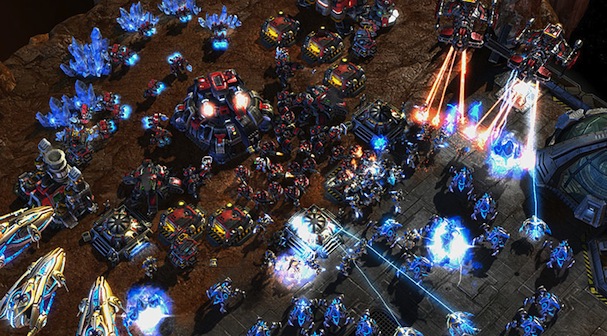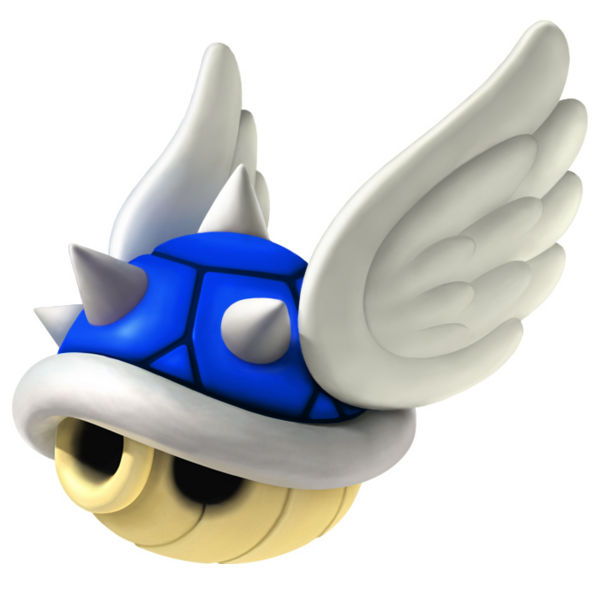This post has not been edited by the GamesBeat staff. Opinions by GamesBeat community writers do not necessarily reflect those of the staff.
Editor's note: Why do we have fun losing at some games and want to throw our controllers at the wall when we lose at others? Layton investigates. -Brett

This time it will be different. That's what I tell myself, anyway.
I'm starting my fourth straight match against my roommate in Starcraft 2. Each of the previous three matches has ended in bloody defeat, with my poor Protoss forces fleeing for their lives until I got too frustrated to let the carnage continue and surrendered.
But not this time.
This time I've learned: a tweak to the build order here, a change in unit production there, harry his supply lines early, waste not a speck of resources. I'm getting better. I have to be getting better.
Twenty minutes later, after I make a Light-Brigade-esque charge with my only remaining zealots — into the valley of roaches ran the half-dozen — I'm watching in horror as the Zerg swarm my defenseless probes. My base is overrun. I have nothing left. I surrender before my Nexus explodes and my failure is complete.
Before the score screen even has time to load, I can already hear myself demanding: "Let's play again."
Why am I doing this to myself? If video games are supposed to be fun, why do I spend hours hurling myself against my roommate's army (or pretty much anyone online) when I know I will lose? Isn't the point of any game to win? If I have no chance at winning — and realistically, I don't — then why play at all?
The simple answer used to be that it's still fun to play with your friends, whether you win or lose. But competitive gaming has changed since online play became standard; it's not enough to be the best in your group of friends anymore, because no matter how good you are, there's always someone better out there. The nameless, faceless Internet has your number.
Some might take that as a challenge. I usually take it as a reason to not give a crap. Either way, there has to be another way to losing can be fun.
Because, paradoxically, I am having fun. I'm getting my ass handed to me, I'm making mistakes I don't even understand, I know I'm being toyed with. But I'm enjoying myself. And I think that's the sign of a good competitive game, whether it's online or off: It communicates something through the process of playing that makes winning feel like a secondary objective.
That's not to say that competition is thrown out altogether. In some games, the need to win has to be leveraged against the need for ebb and flow, to allow players of different skill levels, utilizing different strategies, to gain and lose the upper hand in the course of a match.
 The Mario Kart series is an extreme example of this concept. If you know the courses back to front, you mini-boost constantly, and you've learned the perfect lines, that just means you're all the more likely to be nailed with a blue shell or a lightning bolt. And if you're bringing up the rear because you lack that skill and knowledge, you get to be the one firing off the best items.
The Mario Kart series is an extreme example of this concept. If you know the courses back to front, you mini-boost constantly, and you've learned the perfect lines, that just means you're all the more likely to be nailed with a blue shell or a lightning bolt. And if you're bringing up the rear because you lack that skill and knowledge, you get to be the one firing off the best items.
Games like Modern Warfare 2, on the other hand, reward longevity and dedication in competitive settings. Even if you're the worst player in the match, you'll still get rewarded with XP, new weapons and perks, and other unlockables. (There's even a bit of the Mario Kart principle in the Deathstreak abilities you earn after dying often.)
Starcraft, though, has none of that. You don't get rewarded for doing poorly, and there's no character progression or artificial tipping of the scales mid-match. Everything you need to know — all the unit info, tech trees, strength and defense ratings — is right there, and it doesn't change, win or lose.
So how come I'm getting killed and still having fun? Because Starcraft helps you master the art of learning by losing.
Everything in Starcraft 2 is designed to help you learn the intricacies of the game. You can save your replays. You can look at charts and graphs after each battle to see exactly what your enemy did, what you did, when you did it, and why it did or didn't work. And since every game starts the same way, you can put your newfound knowledge to work instantly. It's like the game rules are the control group, and you're the variable. It's the scientific method, applied in video-game form.
Moreover, the various units' strengths and weaknesses are so tightly balanced and clearly delineated (in Starcraft's classic rock-paper-scissors style) that you always understand when to use a different tactic. The ineffectiveness of one unit is instantly communicated when it comes up against its counter (and you get obliterated). So you try something else. And when you find the right strategy, the information gleaned is all the more rewarding.
Of course, knowing what to do is only one part of the equation. Doing it is something else altogether. That's probably where I personally suffer the most. But you know what? I'm getting better. I'm learning. And that makes losing fun.
Especially when I finally win.
Layton Shumway is an assistant editor at deseretnews.com and should write more frequently on his gaming blog there, First Person Shooter. Follow him on Twitter: @theshums. And if you want to help him lose learn even more, add him on Real ID: layton.shumway@gmail.com. Also, this is his first post here at Bitmob. Please be gentle.
